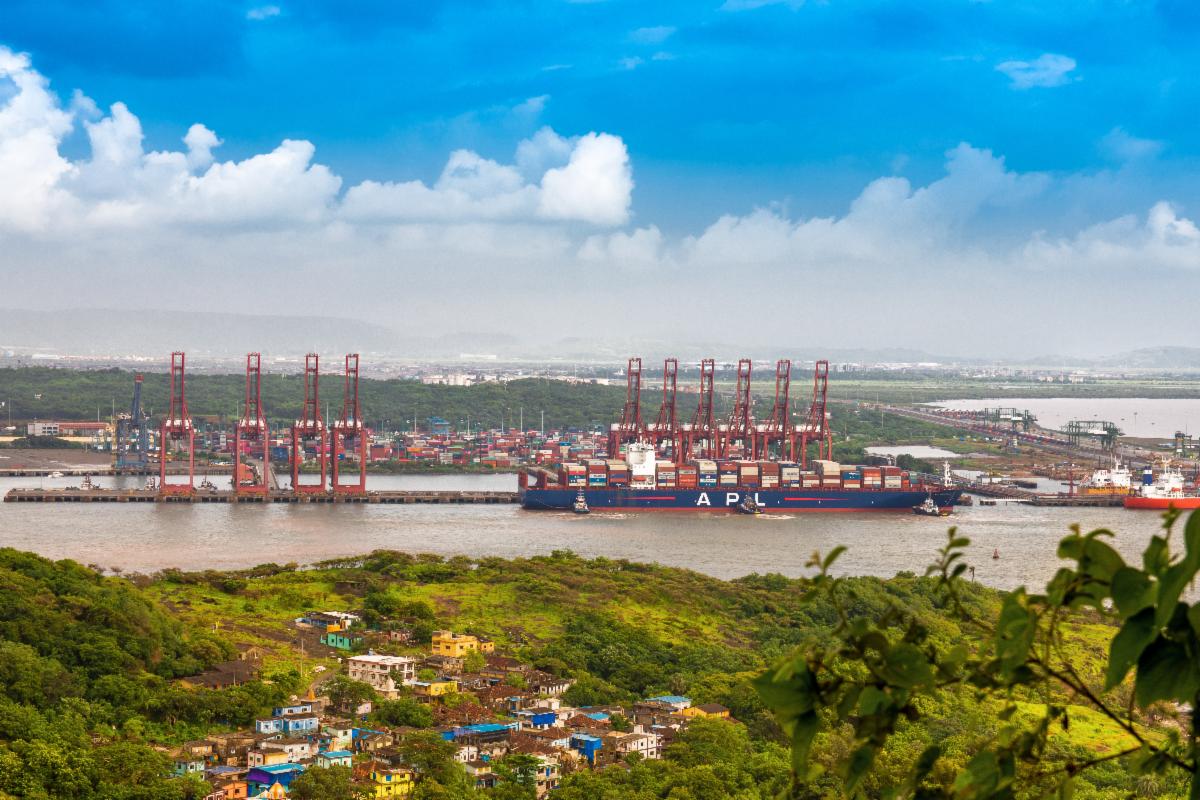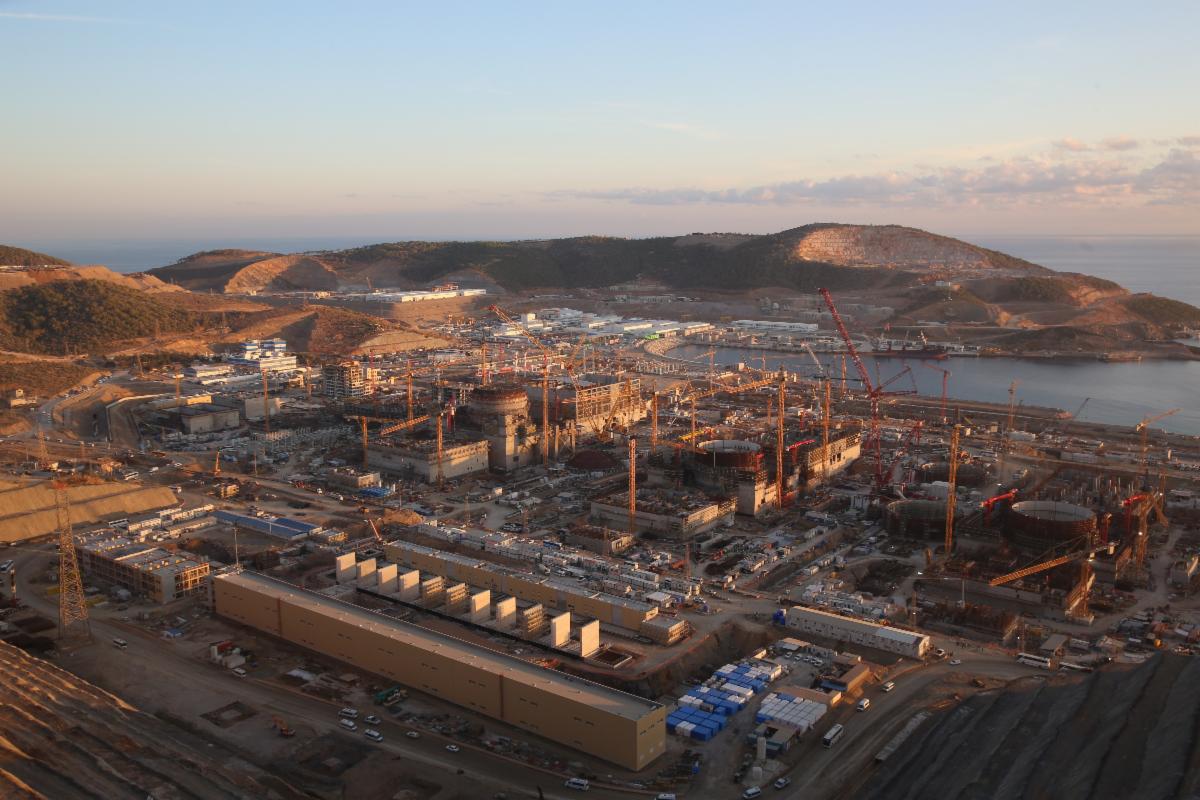Russian Energy Update – May 3, 2023
Russian Energy Update – May 3, 2023
Want to receive future energy updates? Subscribe here.

Ukraine plans increased tariff on Russian pipeline oil
On April 28, the Russian newspaper Kommersant Daily reported that Ukraine intends to raise transit fees on Russian oil entering its territory via the Druzhba Pipeline. Ukraine plans to increase the rate in two stages from €13.6 to €21 per ton of oil, with the full rate implemented by August 2023. The Druzhba pipeline temporarily suspended oil flows for a week in August 2022 because Western sanctions prohibited Russian firm Transneft from paying transit fees to Uktransnafta, Ukraine’s pipeline operator. The suspension ended after Hungarian oil company MOL and Slovak refiner Slovnaft agreed to pay the transit fees on Transneft’s behalf.
Why it matters: Continued oil exports via the Druzhba pipeline underscore the politically awkward energy entanglements between the EU and Russia. Uktransnafta previously defended the higher fees as necessary to cover rising maintenance and operation costs due to Russia’s invasion, but raising the tariffs also places additional pressure on EU members with ongoing energy relationships with Russia.
The EU’s June 2022 Russian oil import ban included a carveout for pipeline crude oil, which was viewed as a concession to EU members like the Czech Republic, Hungary, and Slovakia that rely on Druzhba for oil imports. Although the carveout’s aim was to give these states time to “secure alternative supplies,” the three countries still import a majority of their oil from Russia. According to IEA data tracking monthly oil imports, the Czech Republic, Hungary, and Slovakia respectively imported 43%, 37%, and 76% of their total oil imports from Russia in January 2023. While Hungary has decreased its total Russian imports by 34% since the summer ban, Czech and Slovak imports from Russia have increased. Hungary’s MOL announced a plan to source more crude imports from its share of the Azeri-Chirag-Gunashli oil field to improve regional energy security, but critics say Russia may be exporting some of its oil through Azerbaijan into Europe.

State Bank of India investigates sanctions evasion, Mumbai shipper loses insurance
On April 27, the State Bank of India (SBI) requested that the country’s oil refiners provide data to demonstrate that they complied with the G7’s $60 price cap on Russian oil. The request went to India’s major refiners, including Indian Oil Corporation, Bharat Petroleum Corporation, and Hindustan Petroleum Corporation. SBI’s inquiry came six days after a Mumbai-based tanker company, Gatik Ship Management, lost its Protection and Indemnity insurance (P&I) provided through U.S. insurance association the American Club, after the organization discovered Gatik intended to trade oil above the price cap. Gatik’s tankers are linked to Russia’s “shadow fleet” and have transported Russian oil to India and other ports. The American Club is a member of the International Group of P&I Clubs, which provide P&I insurance to 90% of global shipping. The American Club’s decision came after the U.S. Treasury’s Office of Foreign Assets Control (OFAC) issued guidance on April 17 warning the American private sector they may be unknowingly providing services to sanctions evaders.
Why it matters: Although not explicitly stated, OFAC’s guidance signals U.S.’s intent to curtail the Shadow Fleet and its enablers. OFAC’s apparent interest in Russia’s Eastern Siberia Pacific Ocean Pipeline follows earlier research that Russia traded above the price cap for its Pacific Ocean exports. It’s further evidence that Russia is continuing to search for ways to circumvent Western sanctions, such as exporting diesel and refined oil products to North Africa, and experts’ concerns that Azerbaijan and Turkey are re-exporting Russian crude oil into Europe. Sun Ship Management, a Dubai-based shipping firm, was sanctioned by the EU, which asserted that it was a subsidiary of Russian government-controlled Sovcomflot and transported more than 70% of Russian energy revenue. Gatik’s ownership is unknown, and given the firm quickly amassed a fleet of forty-two tankers after making its first tanker acquisition only in June 2022, it’s worth contemplating whether Gatik has similar ties to Russian interests. SBI’s move is part of India’s larger strategy to avoid U.S. and OFAC scrutiny as it tries to increase oil imports from both the U.S. and Russia to secure its long-term energy security.

U.S. sanctions Rosatom entities as Putin commemorates first Turkish NPP
On April 12, the U.S. Departments of State and Treasury announced sanctions against five entities and one individual associated with Rosastom, Russia’s state nuclear energy firm, including Rusatom Overseas and its President, Evgeny Pakermanov. The agencies said that they sought to use the sanctions to curtail Rosatom’s ability to utilize energy exports “to exert political and economic pressure on its customers globally.” In February, the State Department designated five other Rosatom-affiliated entities for sanctions because of their roles controlling Ukraine’s Zaporizhzhya nuclear power plant (NPP) and constructing nuclear facilities overseas.
The sanctions came two weeks prior to President Vladimir Putin and Turkish President Recep Tayyip Erdogan jointly commemorating the inauguration of Turkey’s first NPP, Akkuyu. Putin hailed the Rosatom-built plant’s high environmental and safety standards, claiming Akkuyu will be “the greatest nuclear power plant on Earth.” Once all four of Akkuyu’s units are operational in 2028, the plant will generate approximately 10% of Turkey’s electricity.
Why it matters: While February’s sanctions targeted Rosatom’s NPP construction overseas, the most recent sanctions explicitly acknowledged Rosatom’s influence in the global nuclear power industry. The U.S. continues to avoid direct sanctions against Rosatom or its core businesses. The Biden Administration had contemplated sanctioning Rosatom as early as March 2022, but unlike oil and natural gas, the U.S. nuclear industry can’t as easily pivot to new trade partners because of its reliance on Russia’s nuclear industry for fuel and enrichment. In 2021, Russia provided 28% of U.S. uranium enrichment services and 14% of U.S. uranium purchases. That year, the U.S. imported 35% of its uranium from Kazakhstan, where Rosatom plays a key role operating mines and transporting uranium abroad. Additional U.S. sanctions could risk limiting exports from both countries.
Russia’s global nuclear industry dominance allows it to foster deeper energy relationships with U.S. allies and partners, including Turkey, India, Egypt and Hungary. Further entrenchment of Russia’s nuclear industry among U.S. allies could make coordinating punitive actions against Russia more difficult.

Russia seizes EU member energy assets
On April 24, Russian President Vladimir Putin signed a decree to temporarily seize Russian assets of Finland’s Fortum and Germany’s Uniper, which operate a combined twelve thermal power plants in Russia. The companies had earlier announced plans to exit Russia. While the Kremlin indicated the seizures can be reversed, officials claimed the move was in retaliation for previous Western seizures of Russian assets. The U.S. and its allies have frozen over $300 billion in Russian Central Bank foreign currency assets, but the assets remain under Russian ownership and U.S. Treasury officials have previously tempered calls to fully confiscate the assets. Some have called for using the frozen assets to fund Ukraine’s reconstruction.
Why it matters: Besides the Western asset freeze, several additional factors likely motivated Russia’s recent action. First, the decree came weeks after Finland had officially joined NATO, and Russia’s move sought to hurt the country’s largest energy company. Second, the G7 had openly considered a near-total export ban against Russia, though the move failed to win consensus support. Lastly, Germany had seized assets of leading Russian energy companies Rosneft and Gazprom by mid-2022, and Russia has previously threatened to seize assets from firms departing Russia. Seizing the newly acquired Uniper may have been in retaliation against Germany’s earlier move, at least in part.
Uniper had earlier attempted to sell its 84% share of its Russian subsidiary, Unipro, to a Russian firm, but could not complete the sale after a separate decree prohibited foreign firms from selling their stakes in Russian businesses without approval by Russia’s president. Russia’s move puts at risk assets worth billions of dollars owned by Fortum, Uniper, German firm Wintershall Dea, and other energy firms that have not fully exited Russia.
